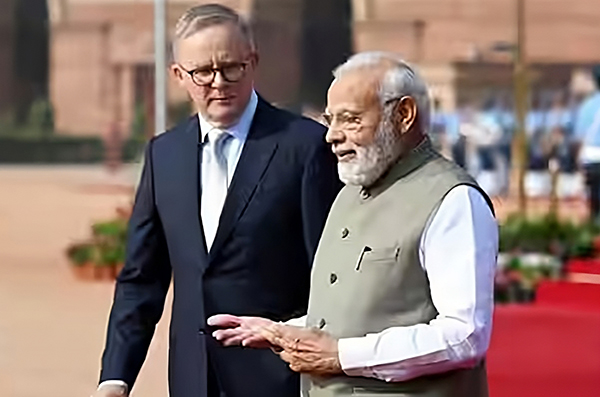
Both countries further assured each other’s support in the candidacies for non-permanent seats on the UNSC for terms 2028-2029 (India) and 2029-2030 (Australia).
Taking collective action against terrorism and globally banned terror entities was among other significant topics discussed during the wide-ranging talks between Prime Minister Narendra Modi and his Australian counterpart Anthony Albanese amid their first annual India-Australia Summit.
“They called upon all countries to work together to root out terrorist safe havens and infrastructure, disrupt terrorist networks and their financing channels and halt use of terrorist proxies and cross-border movement of terrorists,” the joint statement said.
Both PMs have also condemned North Korea’s destabilising missile launches violating the United Nations Security Council (UNSC) resolutions. They also reaffirmed their commitment to complete denuclearisation of North Korea.
Both countries further assured each other’s support in the candidacies for non-permanent seats on the UNSC for terms 2028-2029 (India) and 2029-2030 (Australia). The Australian PM also confirmed its support for India’s permanent membership candidacy at UNSC.
They also expressed their concerns over the deteriorating situation in Myanmar and called for ‘immediate cessation of violence’.
PM Modi earlier said in a statement that he took up the matter of temple vandalism incidents in Australia with PM Albanese. Calling it a ‘matter of regret’, PM Modi said that reports of attacks on temples have been coming regularly from Australia over the past few weeks and that it is natural that such news worries everyone in India.
Both Prime Ministers also talked about topics ranging from economic and trade cooperation; climate, energy, science, technology and research cooperation; people-to-people ties; Covid-19 cooperation; regional and multilateral cooperation.

















